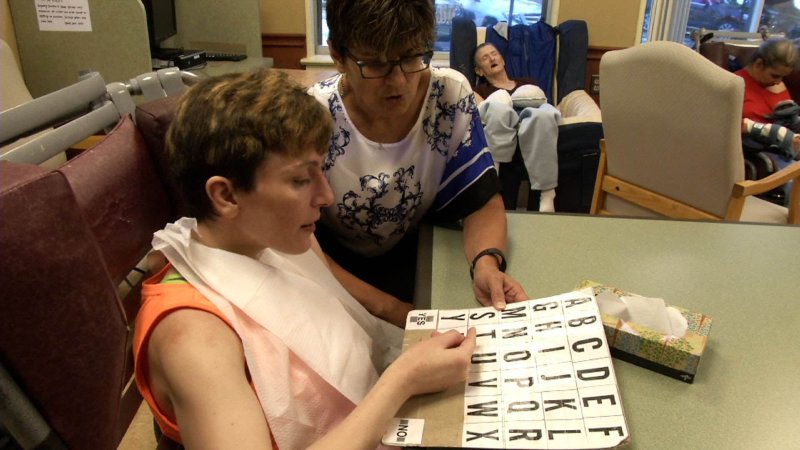Huntington’s is a genetic disorder that causes nerve cells in the brain to gradually break down, leading to irreversible brain damage. There is no cure—only drugs to help manage the side effects, like depression and involuntary movements. Eventually, people lose their ability to think, walk, and speak.
The drug [Huntington’s patient Michelle] Dardengo is trying, made by Ionis Pharmaceuticals, is one of a handful of new therapies in development that aim to alter the genetic root of the disease and thus slow or reverse the damage. Scientists have known the cause of Huntington’s for 25 years—an error in a particular gene.
…
Ionis’s experimental drug uses a technique known as “gene silencing,” or antisense, which involves using strands of chemically modified DNA to essentially gum up the genetic copying mechanism before it can produce harmful huntingtin proteins from the HTT gene. In a small clinical trial, whose initial results were reported in December, the drug reduced levels of huntingtin in 46 people with early Huntington’s disease—making it the first ever to do so.
…
Frank Bennett, head of research at Ionis, says if the drug works, the goal will be to treat patients as early as possible, maybe even before they start showing any symptoms.
Read full, original post: Gene-altering treatments are medicine’s best shot yet against Huntington’s disease































